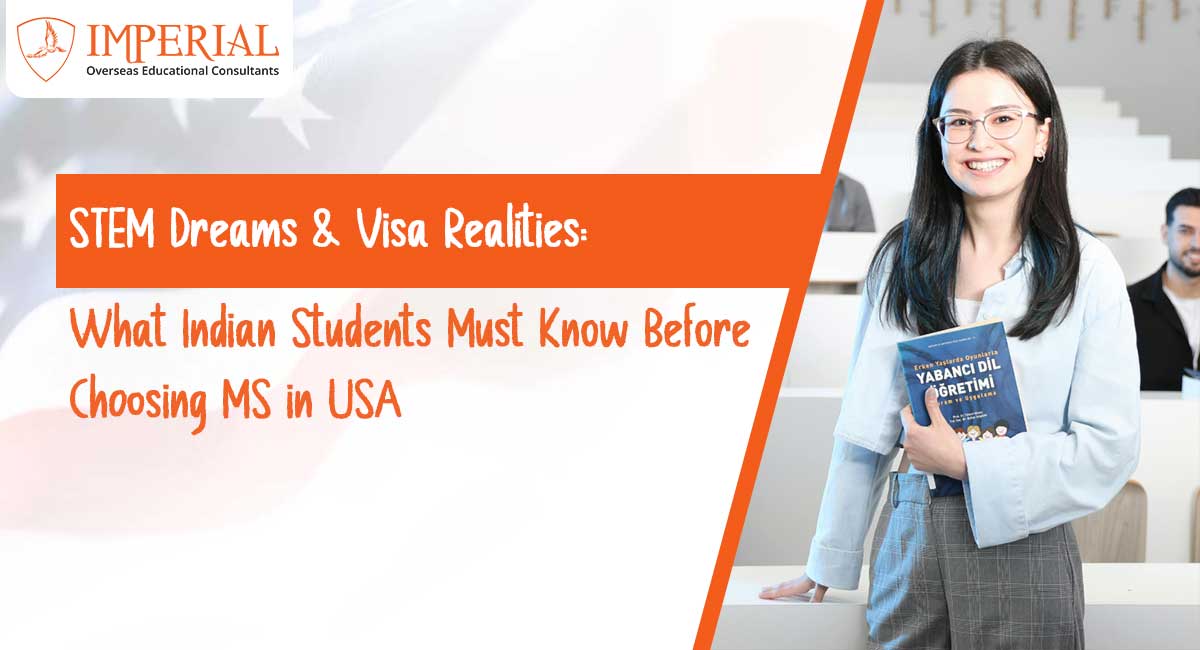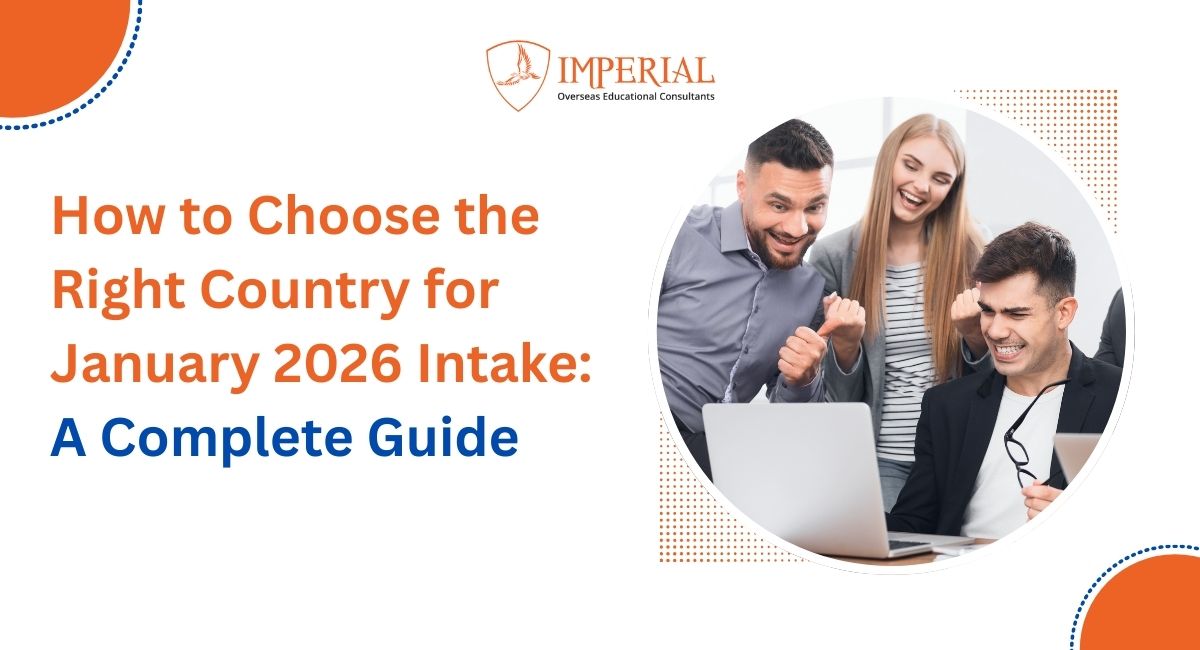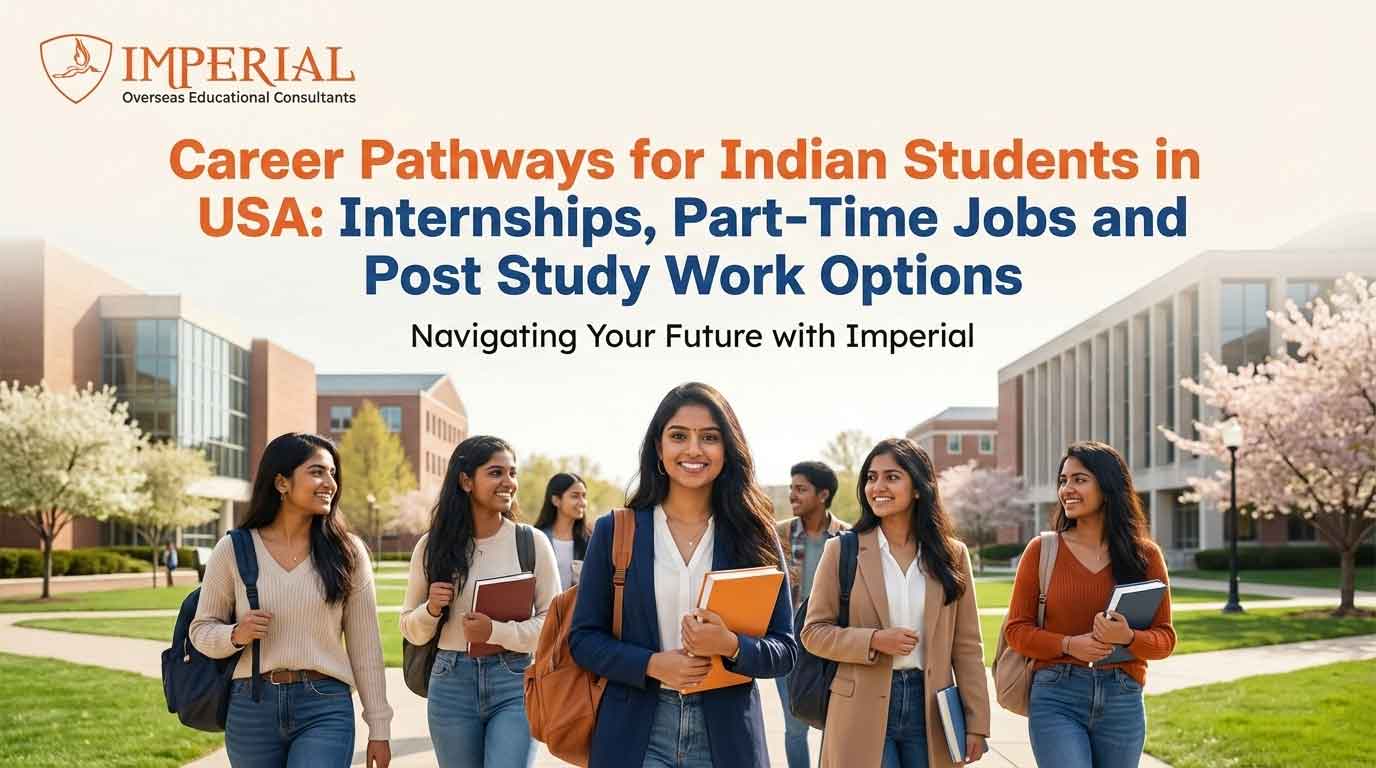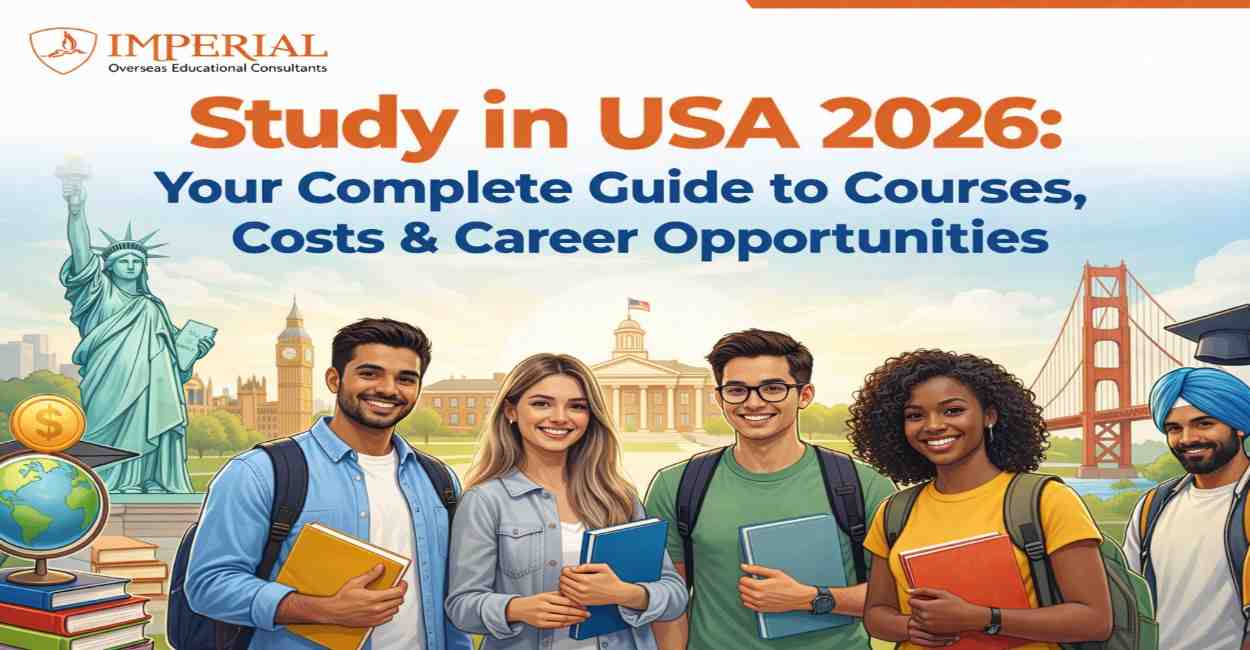
STEM Dreams & Visa Realities: What Indian Students Must Know Before Choosing MS in USA
More than 268,923 Indians were enrolled in U.S. universities as of 2024, according to Open Doors statistics, making pursuing an MS in USA a dream for thousands of Indian students. A lot of the time, students miss an important fact when they are enamoured with top-notch STEM programs, cutting-edge research, and high-paying jobs. The U.S. visa process can make or break your dream, and you need to plan for it. You will need to show proof of your finances and go through tough interviews.
Why Indian Students Prefer to Study MS in USA
The U.S. has more than 1,500 colleges with top-ranked STEM programs around the world. Students are drawn to studying MS in USA because of its high employability, exposure to different countries, and access to top research labs. But there is a lot of competition, and immigration rules are changed all the time. To avoid disappointment, students must make sure that their academic goals and reasonable visa plans are in line with each other.
The Visa Roadblock in MS in USA Journey
Getting into college is only half the battle for many. The worst part is getting a visa. A financial statement that isn’t clear enough or one that is missing can get you turned down, which can be really discouraging for students who want to Study MS in USA. Don’t undervalue the value of professional advice if you want to earn your MS in USA. Here, professionals who help students get visas are very useful because they make the process easier and prepare students for interviews.
How Study Abroad Consultants Simplify the Process
While students focus on schoolwork and test results, study abroad consultants make sure that all the steps needed to get a visa are taken. They help with shortlisting universities, finding scholarships, writing a SOP, and getting ready for life in a different culture. They play a very important role for people who want to pursue an MS in USA because US colleges require academic precision and clarity.
Student Visa Consultants and Their Role
Many times, getting a visa is key to making your MS in USA plan work. Consultants for student visas help students prepare for interviews, help them with their financial paperwork, and let them know about changes to policies. Without professional help, a lot of students have to wait longer than they need to or even get turned down. Getting help from reliable experts can help you reach your STEM goal more easily.
Choosing the Right Support Before You Study MS in USA
Finding the right therapist is of utmost importance. The process can be accelerated, and you can receive support that is tailored to your job if you are very familiar with student cards, attending school abroad, and guided by professionalStudent Visa Consultants. To be ahead of the game, you need to take the assistance of a business.
Contact Imperial Overseas Education Consultants Thane immediately to secure a successful study trip abroad. Their experts can help you choose an institution and secure a visa.
Fear of bureaucracy shouldn’t prevent you from getting an MS in the US. You can count on Overseas Study Consultants Kolkata to help you quickly.
Conclusion
The U.S. is still the best place for Indian students to get higher degrees, but the realities of visas can’t be ignored. An MS in USA opens up a lot of academic and career doors, but you need to prepare well and get help from experts if you want to succeed. Getting the right study abroad and student visa help can make sure that your dream doesn’t stop at the consulate.
FAQs
Most students start getting ready at least 12–18 months before they want to start school so that they have enough time for tests, applications, and visas.
Yes, foreign students can work on campus up to 20 hours a week during the school year and full-time during breaks.
There are many universities that give scholarships based on need and merit, but there is a lot of competition and the deadlines are very short.
Optional Practical Training (OPT) lets students work in the U.S. for up to 12 months after they finish, and STEM graduates can get an extra 24 months.
Yes, most universities in the U.S. expect students to have valid health insurance while they are there.



